You may not spend your days worrying about what to wear or if your home is on-trend, but as a property manager, you must present yourself in the best possible light. From interviewing prospective tenants to handling maintenance issues and lease renewals, this job requires you to be organized, detail-oriented, and empathetic. If you’re thinking about switching career paths and becoming a property manager or are simply looking for an alternative CV builder that shows off your people skills and logical thinking abilities, writing a resume will help you stand out from the crowd. With so many applicants vying for the same positions, setting yourself apart from the group can be challenging. That’s why we’ve put together this handy guide on how to write a resume as a Property Manager with resume examples and tips that will get you noticed in a good way.
Property Manager Resume Example

Download This Property Manager Resume as PDF
Residential Property Manager Resume Example
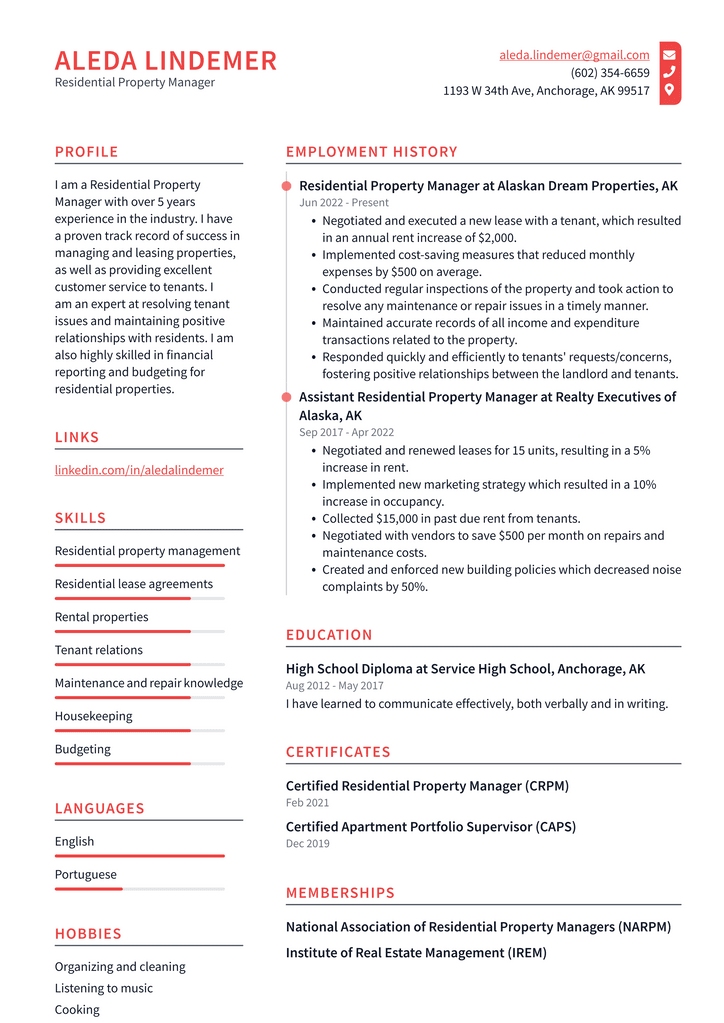
Download This Residential Property Manager Resume as PDF
Assistant Property Manager Resume Example
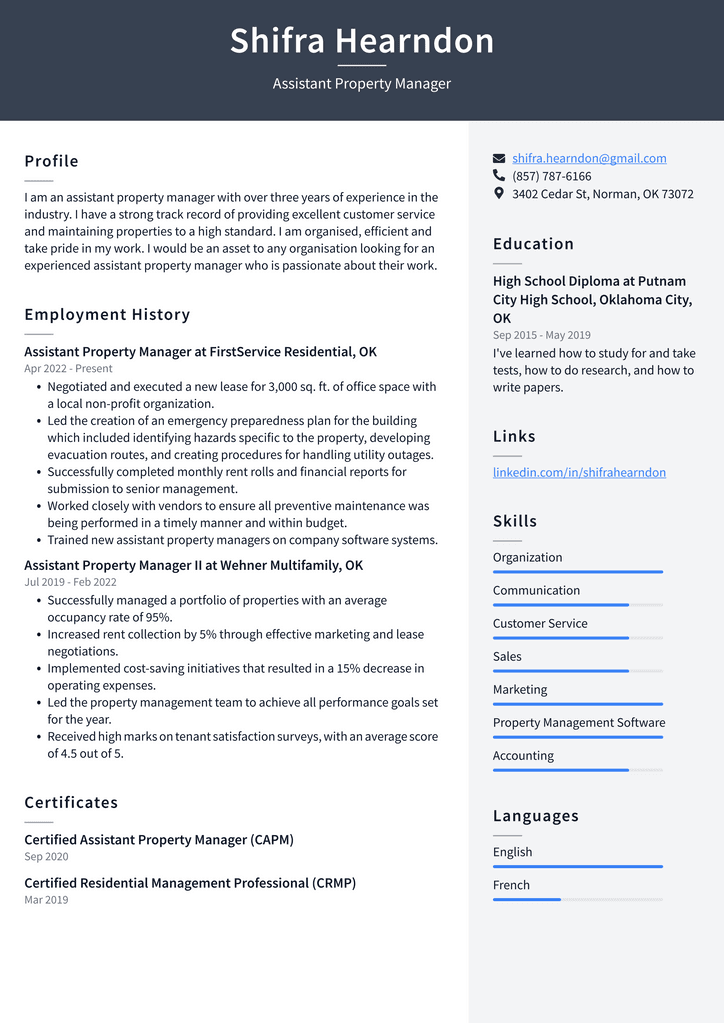
Download This Assistant Property Manager Resume as PDF
Property Accountant Resume Example
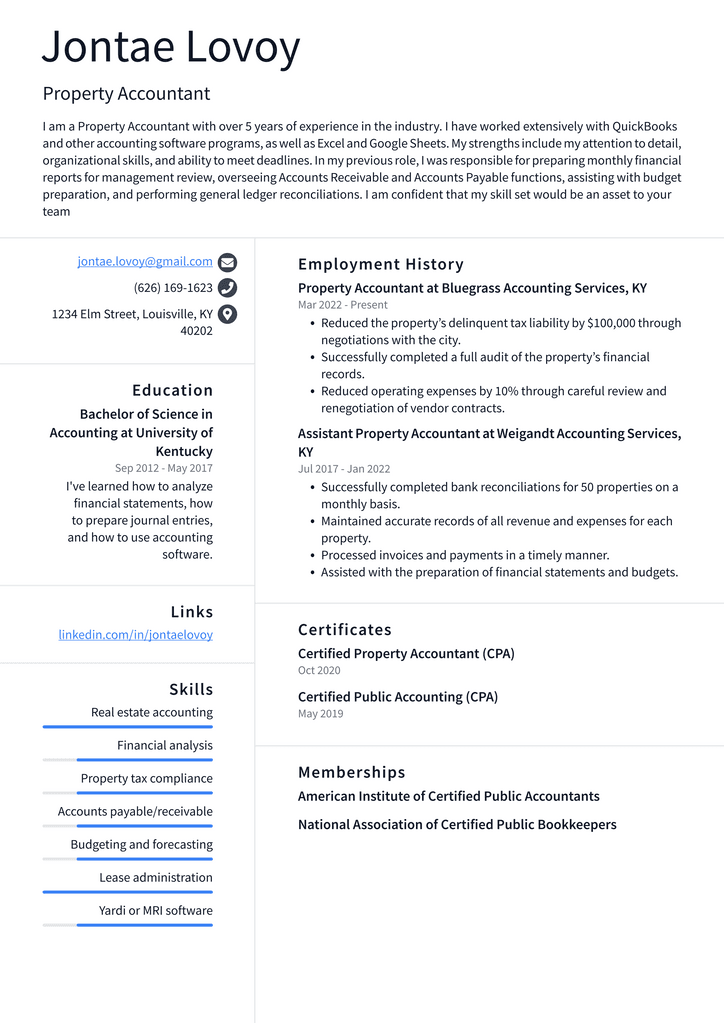
Download This Property Accountant Resume as PDF
Commercial Property Manager Resume Example
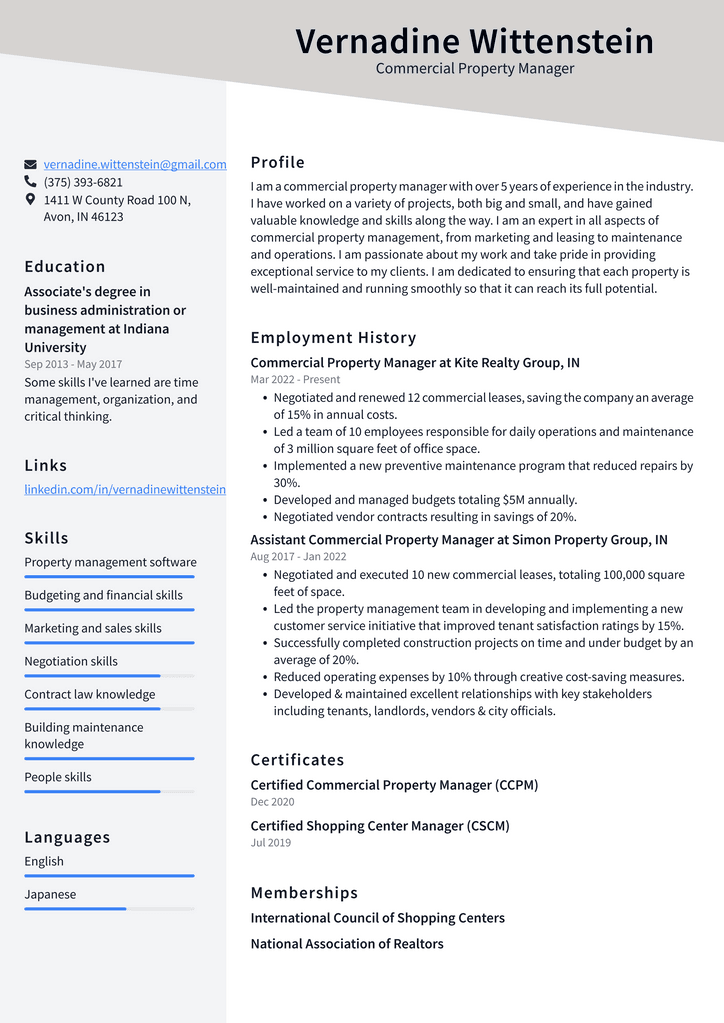
Download This Commercial Property Manager Resume as PDF
Leasing Consultant Resume Example
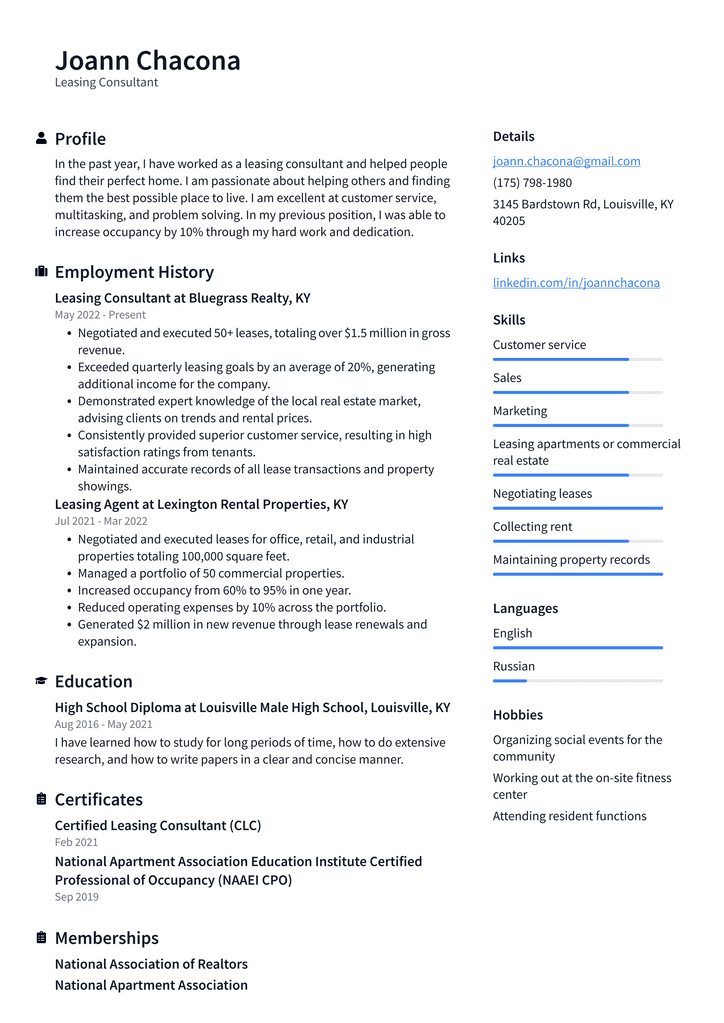
Download This Leasing Consultant Resume as PDF
Property Maintenance Technician Resume Example
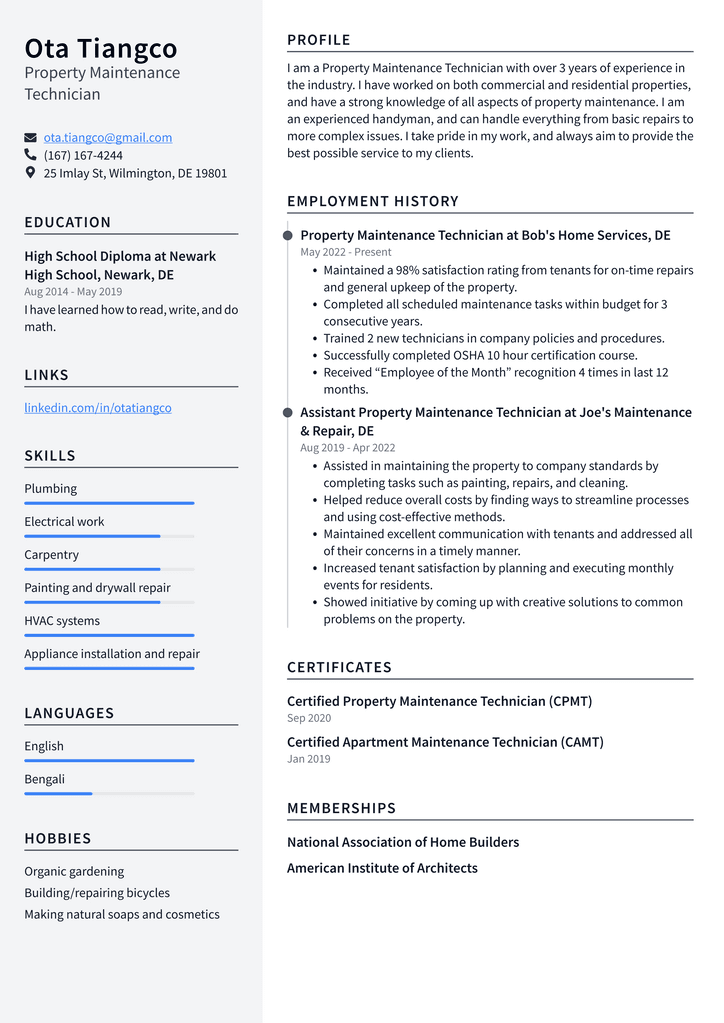
Download This Property Maintenance Technician Resume as PDF
Be clear and concise
Resumes have a limited word count, so make sure you don’t write too much. As a rule of thumb, aim to keep your resume to one page. If you have a ton of experience, you can go to two pages, but don’t go for more. If you’ve got a lot to say about your career and volunteer experience, use bullet points to make your resume scannable. This will make it easier for hiring managers to quickly take in all the information you’re trying to impart and will also make it easier for you to organize your thoughts again if it is an essential tip if you have a lot of experience. You don’t want to lose a hiring manager’s attention before they make it to the end of your resume.
Keep it brief
The first thing someone will notice about your resume is its length. If the company’s name and position are on top, the font is large enough, and the margins between sections are consistent, all readers will see before they decide to keep going or stop reading. If your resume contains details and quotes, it may be easy to overlook your relevant experience and qualifications. You don’t want to omit pertinent information, but you also don’t want to overwhelm the hiring manager with too many facts. We’ll get into specifics below, but in general, keep your resume brief and consistent.
Show your soft skills
There’s no room for ego on your resume, but there is room for highlighting your soft skills and showing how they’re relevant to the position. For example, if you’ve experienced a customer service role, don’t simply list it on your resume as “customer service representative.” Instead, highlight your communication skills and ability to empathize with others. This will help hiring managers realize that you’re a more well-rounded candidate who isn’t simply good at pushing a button. It will also show them that you understand the importance of the job you’re applying for and that you’re a good fit for the position.
Sum up your most relevant experience
If you have a lot of experience, it can be hard to know which sections to include on your resume. This is where you can use the “skill summary” or “experience summary” section. This is the perfect place to include what you’ve been doing in the industry for the past few years, but without listing every job, you’ve held. Instead, please focus on the most relevant experience, and explain why it’s appropriate for the position you’re applying for. This will help a hiring manager quickly skim your resume and understand why you’re a good fit. It will also help you avoid cluttering your resume with job responsibilities that aren’t relevant to the position you want.
Add a Professional Profile or Skills Section
Suppose you’re switching careers and don’t have a long career history, or you’re simply trying to focus on skills that will help you land a property management position. In that case, you can include a professional profile or skills section at the end of your resume. For example, if you’re applying to be a property manager, you can add a skills section that focuses on your organizational skills, ability to multi-task, and customer service skills. This section is pretty standard among other industries and job types, giving hiring managers an idea of how you approach problems and what skills you bring to the table.
Conclusion
Your resume is the first thing a hiring manager will see after submitting your job application, so you want to ensure it’s perfect. When writing a resume as a Property Manager, keep it brief and focused and highlight your soft skills. You can also include a professional profile or skills section at the end of your resume to show hiring managers what you’re all about. With these tips and resume examples in mind, writing a resume should be a breeze.